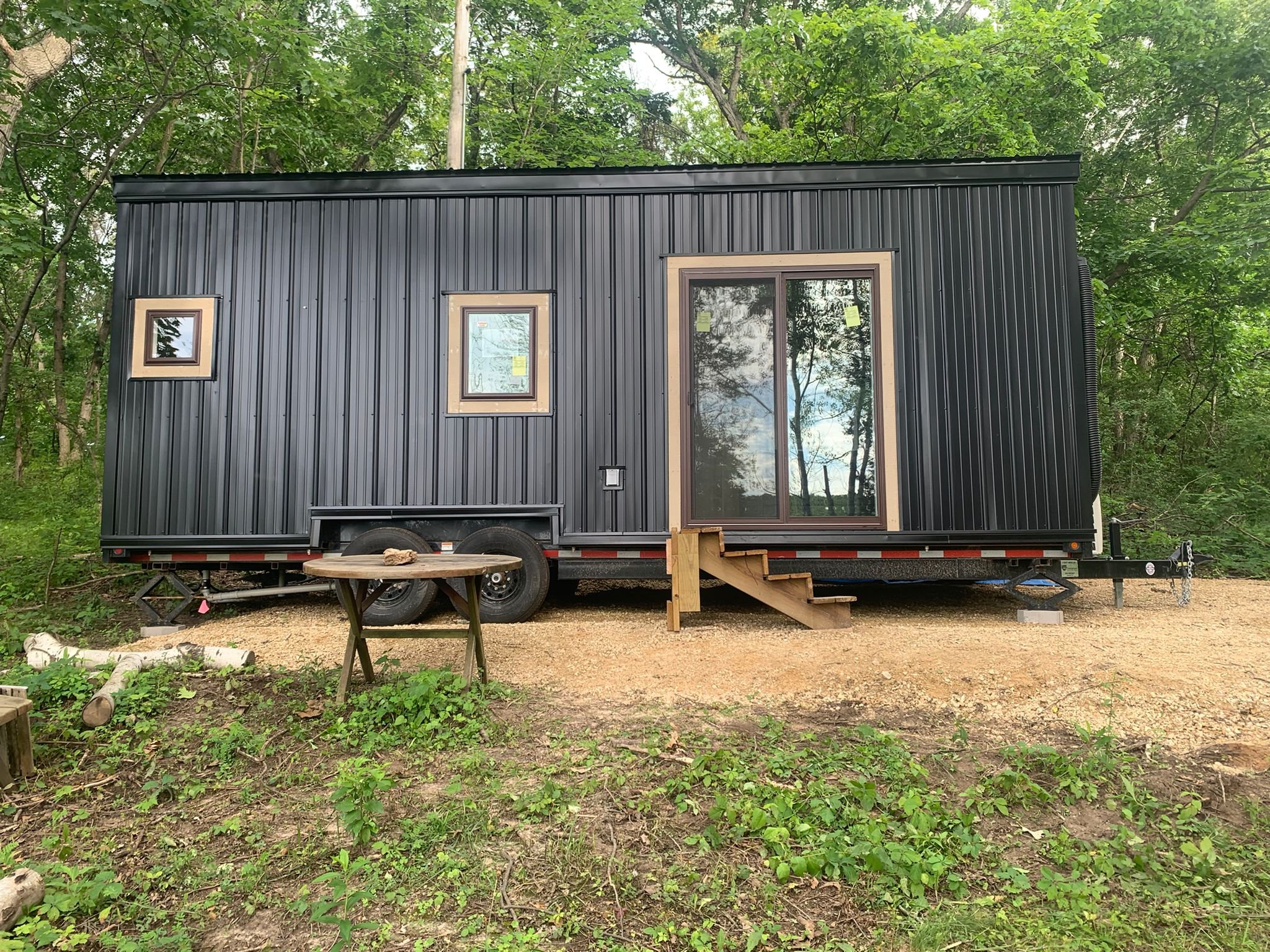Tiny homes & ADUs









What is an ADU/tiny home
ADU (Accessory Dwelling Unit) is an umbrella term for secondary residences located on a single-family residential lot. ADUs allow living separate from the primary residence, containing their own kitchen, bathroom, and bedroom(s). ADUs are also commonly known as secondary suites, in-law/mother-in-law suites, granny flats, tiny houses, garage apartments, etc. ADUs can be attached or detached, built above your garage, or built in your basement or attic level of your home.
Tiny homes fall under the umbrella of ADU. They can be built on a permanent foundation or built on a trailer with wheels, much like a mobile home, also called a tiny home on wheels.
Your local zoning laws and ordinances may dictate factors such as whether you may have more than one residential building on your property, where they can be located on your property, square footage, number of bedrooms, renting options, and more.
Non-residential structures, such as detached offices, music studios, or playrooms for your kids, would not be considered ADUs, though they are still great ideas and something we can help you achieve!
How much does it cost to build an ADU?
Just like any home or structure on your property, the cost of building can vary greatly. Factors such as material choices, design, location, type of foundation, size, supply and demand, etc. all impact the cost of your project. We here at Ace of Space are here to help you get the biggest bang for your buck while sticking within your budget, so reach out to start a conversation.
How long does it take to build an ADU?
Much like the cost of your ADU, this can vary greatly due to an array of factors. The best way to get a better idea of your Ace of Space project timeline is to reach out to us and discuss what it is that you’re looking for.
Why build one?
ADUs are a great option for a variety of reasons including:
Housing loved ones who are looking to transition out of living independently, or housing family members who are looking for a multigenerational living arrangement
Having a guest house on your property
Renting out an ADU for short or long term stays for additional income
Raising your property value
Downsizing while staying on the same property
Adding a sustainable and affordable housing option to your local community
How do I find the ADU regulation about where I live?
Madison, WI, has zoning regulations that can impact the viability of tiny houses. Here are some key points:
Zoning Districts: Madison's zoning districts have specific rules for residential properties, including lot size, building setbacks, and density. Tiny houses may need to comply with these standards, depending on their location.
Auxiliary Dwelling Units (ADUs): In Dane County, which includes Madison, ADUs are permitted and can be as small as 150 square feet. This makes tiny houses a viable option if they meet the criteria for ADUs.
Permanent vs. Mobile Tiny Houses: Permanent tiny houses must adhere to building codes and zoning regulations, including foundation requirements and utility connections. Tiny houses on wheels may fall under RV or campground guidelines.
Utility and Infrastructure: Tiny houses must have access to utilities like electricity, water, and waste disposal. This can be a challenge in areas with strict requirements.
Location Considerations: The location of a tiny house can affect its viability. Rural areas may have more lenient zoning laws compared to urban settings.
If you're considering a tiny house in Madison, it's essential to research local zoning codes and consult with city officials to ensure compliance. What kind of tiny house are you envisioning?
Wisconsin Public Radio, © Copyright 2025, Board of Regents of the University of Wisconsin System and Wisconsin Educational Communications Board.
Check out this episode “Home Improvement: The Tiny House Movement
Air Date: Jan 11 2018
Heard On The Larry Meiller Show

